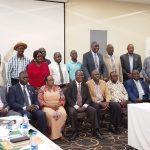The Buganda Kingdom mentorship camp, known as the Ekisaakaate, has placed a strong emphasis on digital and coding skills in its recent program, equipping hundreds of young participants with essential modern skills. The camp, which lasted for sixteen days, collaborated with telecom service provider MTN to provide cutting-edge technology and training in computer usage and programming fundamentals.
The focus on technology and coding aimed to prepare children aged nine to nineteen for the challenges and opportunities of the modern world. The organizers recognized the increasing importance of digital skills in various job sectors, with technology advancements like artificial intelligence shaping the job market.
Steven Mutana, the chief strategy manager of MTN’s fintech arm, highlighted the exposure of children to coding over a week and a half, facilitated by a high-speed broadband network. The goal was to equip participants with skills demanded by the future job market.
The integration of technology into the camp’s curriculum aligns with the global trend of recognizing the significance of digital literacy and coding skills in preparing the youth for the evolving job landscape. The International Monetary Fund (IMF) has expressed concerns about potential job displacement due to artificial intelligence, emphasizing the need for skills that complement technological advancements.
Buganda Kingdom Prime Minister Charles Peter Mayiga, known as the Katikkiro, emphasized the camp’s focus on helping children adapt to the modern world. He highlighted the challenges faced by today’s teenagers, who spend significant time at school and often rely on house helps at home. Mayiga stressed the importance of preparing the youth for the challenges they will face in the contemporary world.
While the camp concentrated on technology and coding, UNICEF’s 2024 children outlook emphasized the need for policies that prioritize equity and sustainability alongside technological innovation. The global outlook projected a positive picture of children’s health, education, and well-being, emphasizing the importance of policies centered on universal health care and education.
The recent government audit in Uganda revealed that children enrolled in Universal Primary Education were being taught incomplete syllabi, impacting their understanding and performance in critical exam subjects. The challenges included excessive teacher workload, commuting time, and late reporting of pupils at the beginning of terms.
The Buganda Kingdom’s initiative to incorporate coding and digital skills into its mentorship program reflects a recognition of the changing demands of the job market and the importance of equipping young people with relevant skills for the future.




















